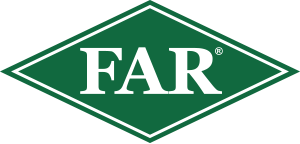Arable farmers are the unsung heroes of the primary sector. Through the production of grain, seed and other crops, the industry is worth $2.1 billion dollars to the New Zealand economy. Arable crops are also the driving force behind our $20 billion livestock industry as the source of seed for animal pastures, and grain and silage for complementary animal feed. New Zealand's arable farmers grow more than 40 different grain and seed crops, with some farmers having up to 20 crops on their farm in a single year.
Download our New Zealand Arable Industry fact sheet.
Contribution
This contribution is spread across the regions: Arable crops are produced on 180,000 hectares of land around New Zealand with the bulk of production centered in the Canterbury region, Southland, Manawatu, Hawke's Bay, Wairarapa and Waikato.
Because it is smaller than that of many other grain growing countries, the New Zealand arable industry is able to adopt new crops, systems and production methods relatively quickly in response to market signals. This flexibility and our constant search for innovative crop management systems ensure the future of the local arable industry as a significant contributor to our local economy.
Sustainability
Arable cropping has a low environmental footprint. It contributes less than one percent of New Zealand's greenhouse gas emissions. New Zealand's arable soils have high carbon content (3-5 percent) with more than 70 percent of arable farms in New Zealand, exceeding the recommended national standards for soil quality (carbon content, aggregate stability). This makes our arable industry a top performer by international environmental standards.
Irrigation is a valuable management tool for arable growers, allowing them to maximise their yields and grow a broader range of crops over a longer time period. It also helps keep crops healthy and resilient to biotic and abiotic stress factors. The use of sensor and application technologies means that growers only apply water when and where it is needed for optimum crop growth.
Arable growers use synthetic inputs responsibly. Pesticides are only applied when necessary and under strict, internationally accepted guidelines. For example, in New Zealand, neonicotinoids are used as a seed treatment and are not applied as foliar applications during the growing season, as occurs in other countries. This means that they pose little risk to foraging bees.
Similarly, growers use a range of plant and soil monitoring tools to make sure that they only apply the amount of fertilisers that the plants need for optimum growth, thereby minimizing the risk of leaching into waterways.
Highly productive land-use
New Zealand's arable growers are the most productive in the world, holding the world yield records for both wheat and barley. They are able to produce such high yields due to our favourable climate (rainfall, temperature), good soils, high performing cultivars, effective use of irrigation and extremely skilled growers. New Zealand arable systems are unique in that they generally include livestock. This 'pastoral' phase of the rotation contributes to weed, pest and disease control, as well as nutrient management and soil quality. Arable crops are generally grown on flat land or gentle slopes and require good soils with high fertility. This is high-value land so returns must also be high to justify the investment. Arable farming is diverse, resilient, sustainable, and profitable. The gross margin for key grain crops is approx. $1500-2000/ha and for key seed crops is $2,000-4,000/ha, making this an attractive land use option for many regions of New Zealand where high-value horticulture is not feasible and intensive dairying is environmentally challenging
Arable industry groups and organisations
As the levy payer organisation, FAR represents arable growers, but we also work with a range of other arable industry groups and organisations:
- Arable Food Industry Council
- Federated Farmers of New Zealand – Arable Industry Group
- New Zealand Grain & Seed Trade Association
- New Zealand Plant Breeding & Research Association
- United Wheat Growers New Zealand
- New Zealand Feed Manufacturers Association
- New Zealand Flour Millers Association
- The Baking Industry Association of New Zealand
Arable Industry Marketing Initiative
The Arable Industry Marketing Initiative (AIMI), provides market intelligence to enable growers to make informed decisions about planting and selling maize and cereals.

